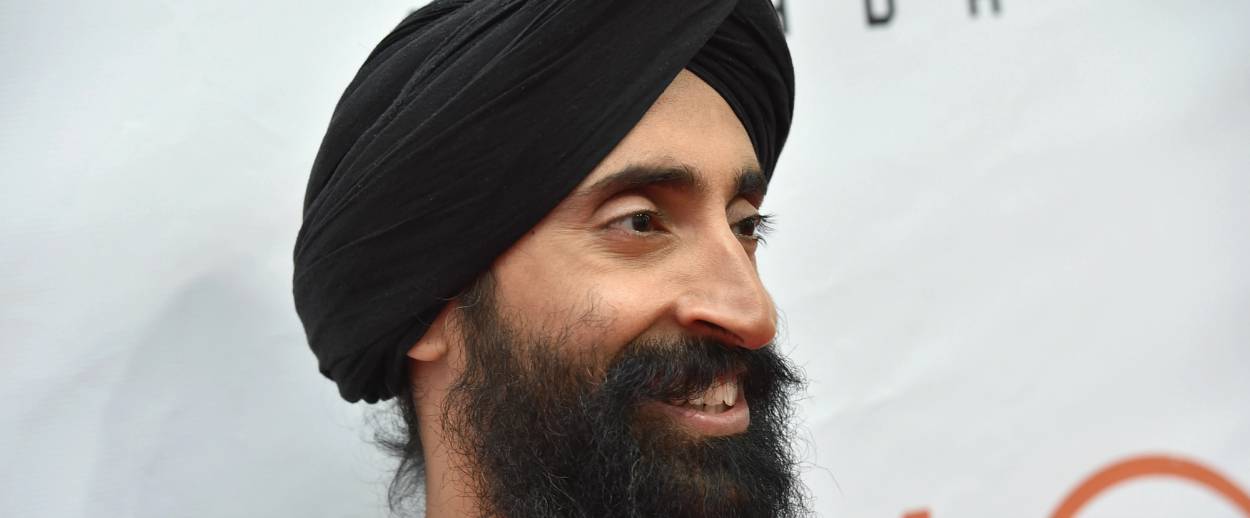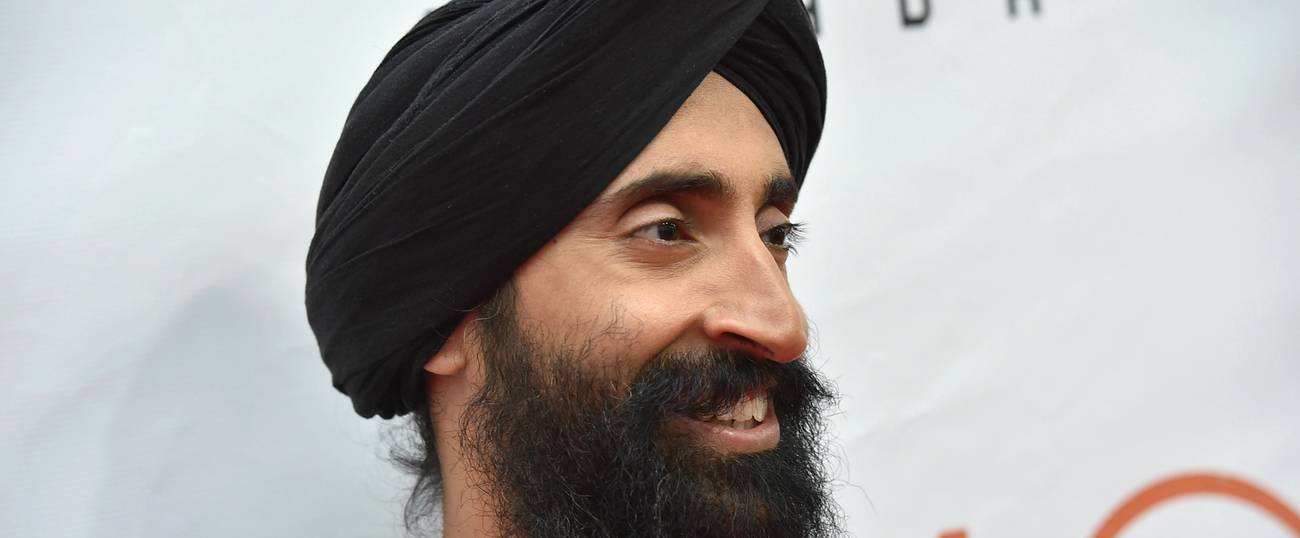Wear Your Faith
Will there ever be a time when a person’s religious garments are exempt from inspection?




Last week, Waris Ahluwalia, the well-known Sikh-American actor (he often partners with Wes Anderson), jewelry designer, and man about town, was barred from boarding a flight in Mexico City, heading to the U.S., because he refused to remove his distinctive turban before going through security. “I responded matter-of-factly that I won’t be taking off my turban,” Ahluwalia said in an interview with the New York Times. “And then they talked amongst themselves and they said, ‘O.K., then you are not getting on the flight.’ ” Eventually, after a two-day standoff with Aeroméxico, Ahluwalia, who’s from Brooklyn, was finally allowed to fly home. (Aeroméxico issued an apology.)
For Sikh men, the turban (as well as the beard) is an article of faith, a symbol of equality and justice to be worn at all times. Asking Ahluwalia (or anybody else for whom this garment is vital) to remove it would be tantamount to requiring an Orthodox Jewish man to completely uncover his head: Both are clear violations of a right to freely express ones religion.
There’s much about airport security procedures (Ahluwalia’s screening was apparently in compliance with TSA rules) that have always baffled me. For example, if someone is really determined to blow up an airplane, I’m assuming they would attempt to do so in the most inconspicuous way possible. That is, by not wearing an enormous turban, or a classic abaya-niqab combo, or an ultra-Orthodox caftan and shtreimel, or anything else that would make the majority of one’s fellow passengers eye you with (at best) curiosity or (at worst) outright hostility. And it sucks that this seems to be the world we live in, one in which certain religious garments can be equated with a desire to inflict violence, which is one way to interpret the Ahluwalia mess. It’s the sort of bullshit that grounds planes when some redneck gets nervous about somebody speaking in, I don’t know, “Arab talk” (i.e. Italian) and complains to the stewardess.
There’s also the reality that “terrorists”—in the newly terrifying form of ISIS, for example—seem to have caught on to the fact that there are more ways to kill a cat (or a whole bunch of infidels) than trying to sneak the component parts of a bomb onto an airplane. And these violent acts, be they on a plane or elsewhere, can come religion- and religious-garments-optional. There is no terrorist uniform.
Ahluwalia’s story also comes at a time when there is a genuine debate—and in some cases, one that brooks no genuine discussion—about the wearing of religious garb in the public space. The hijab has been banned in several countries in Africa and Europe. France recently debated the wisdom of wearing the kippah in public (ostensibly for the safety of the Jews’ who might wear it, which feels a little bit like telling women not to wear miniskirts, so they don’t look like they’re asking for it.) It feels these bans are futile attempt to eradicate an ideology by attacking its outward manifestations; they’re are sure to have unforeseen circumstances on our civil liberties, not to mention those who feel persecuted by them.
Fifteen years after 9/11, it’s time for all of us to take a nice deep breath and use some common sense. Believe me, the next time a bomb shows up on an airplane, it’s not going to be in the turban of someone who did a GAP ad.
Previous: Rock That Tallit
Rachel Shukert is the author of the memoirs Have You No Shame? and Everything Is Going To Be Great,and the novel Starstruck. She is the creator of the Netflix show The Baby-Sitters Club, and a writer on such series as GLOW and Supergirl. Her Twitter feed is @rachelshukert.